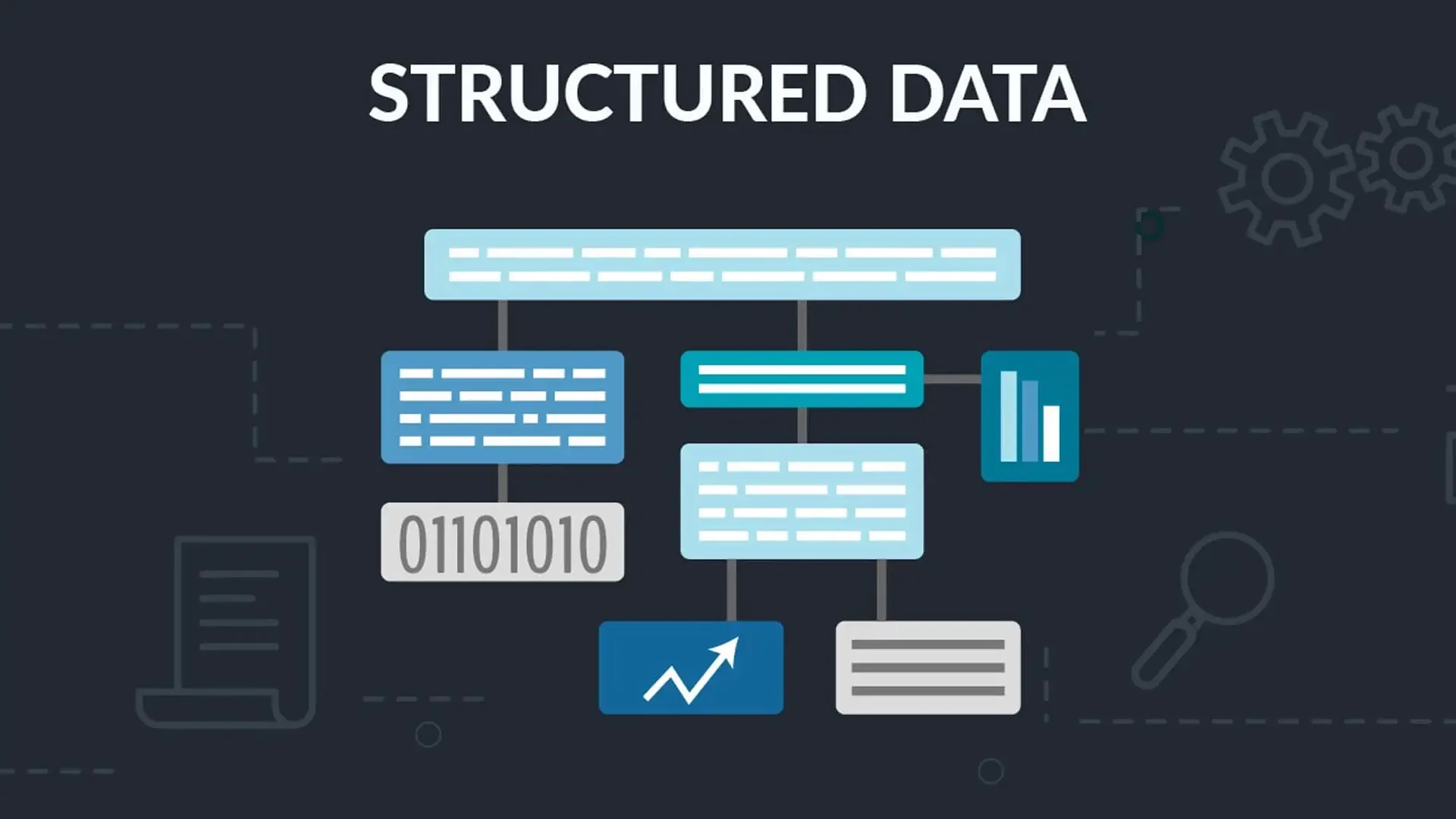Understanding Schema.org Structured Data: A Complete Guide to Boosting Your SEO

Understanding Schema.org Structured Data and Its Impact on SEO
In the ever-evolving world of search engine optimization (SEO), staying ahead of the curve is essential for businesses looking to maximize their online visibility. One of the most powerful yet often underutilized tools in an SEO professional's arsenal is Schema.org structured data. This markup language helps search engines understand your content better, leading to enhanced search results and improved click-through rates.
At Falcon Internet, we've seen firsthand how implementing structured data can transform a website's search presence. Whether you're running an e-commerce site on our managed web hosting platform or hosting a complex web application, understanding and implementing Schema.org markup can give you a significant competitive advantage.
What is Schema.org Structured Data?
Schema.org is a collaborative project founded by Google, Microsoft, Yahoo, and Yandex to create a standardized vocabulary for structured data markup on web pages. In simple terms, it's a way to label and organize information on your website so search engines can better understand what your content is about.
Think of structured data as a translation layer between your website and search engines. While humans can easily understand that "January 15, 2025, 7:00 PM" refers to an event date and time, search engines need explicit markup to interpret this information correctly. Schema.org provides that markup language.
How Structured Data Works
Structured data uses a specific vocabulary of tags (or "microdata") that you add to your HTML code. These tags don't change how your page looks to visitors, but they provide crucial context to search engine crawlers. The most common formats for implementing structured data are:
- JSON-LD (JavaScript Object Notation for Linked Data) - The format recommended by Google, which allows you to add structured data in a script tag separate from your HTML content
- Microdata - Inline HTML attributes that nest structured data within your existing content
- RDFa (Resource Description Framework in Attributes) - An extension to HTML5 that supports linked data
For most implementations, JSON-LD is the preferred choice due to its ease of use and maintenance. It's particularly well-suited for websites hosted on modern platforms, including those on WordPress hosting where you can easily add JSON-LD scripts through plugins or theme functions.
The SEO Benefits of Structured Data
Implementing Schema.org markup offers numerous advantages for your website's search engine performance:
1. Rich Snippets and Enhanced Search Results
The most visible benefit of structured data is the appearance of rich snippets in search results. These enhanced listings can include star ratings, images, pricing information, event details, and other relevant data that makes your search result stand out from the competition. Studies have shown that rich snippets can increase click-through rates by 20-30% compared to standard search results.
2. Better Understanding of Content Context
Structured data helps search engines understand the relationships between different pieces of content on your site. For instance, if you're hosting a business website on our VPS hosting platform, schema markup can clearly define your organization's details, location, contact information, and services in a way that search engines can easily process and display.
3. Voice Search Optimization
As voice search continues to grow in popularity, structured data becomes increasingly important. Virtual assistants like Google Assistant, Siri, and Alexa rely heavily on structured data to provide accurate answers to voice queries. By implementing schema markup, you increase the likelihood of your content being featured in voice search results.
4. Knowledge Graph Integration
Proper implementation of structured data can help your business appear in Google's Knowledge Graph - the information box that appears on the right side of search results for branded queries. This prominent placement significantly enhances brand visibility and credibility.
5. Improved Local SEO
For businesses with physical locations, LocalBusiness schema markup is crucial. It helps search engines display accurate information about your business hours, address, phone number, and other details that are essential for local searches.
Types of Schema Markup for Different Content
Schema.org offers hundreds of different types of structured data markup. Here are some of the most commonly used schemas:
- Article Schema - For blog posts and news articles
- Product Schema - For e-commerce product pages
- LocalBusiness Schema - For business information
- Event Schema - For upcoming events and activities
- Recipe Schema - For cooking recipes
- Review Schema - For product and service reviews
- FAQ Schema - For frequently asked questions
- HowTo Schema - For step-by-step guides
- Organization Schema - For company information
- WebSite Schema - For sitewide information
Event Schema: A Real-World Case Study
One of the most impactful applications of structured data is Event schema markup. When properly implemented, Event schema can dramatically increase visibility for organizations hosting events, conferences, workshops, and community gatherings.
Why Event Schema Matters
Event schema is particularly valuable because it enables search engines to display event information directly in search results, complete with dates, times, locations, and ticket information. This can appear as a rich snippet in regular search results, but even more importantly, it allows events to be featured in Google's dedicated event search features, including:
- Google Event Search - A specialized search interface for finding local events
- Google Maps event listings - Events appear directly on maps when users search for things to do
- Knowledge Panel events - Featured events appear in branded search results
- Calendar integration - Users can add events directly to their Google Calendar from search results
Community Creates: An Exemplary Implementation
A perfect example of well-implemented Event schema can be found at CommunityCreates.org. This organization effectively uses structured data to promote their community events and workshops, making it easy for search engines to understand and display their event information.
When you examine their event pages, you'll find comprehensive Event schema markup that includes:
- Event name and description - Clear, descriptive titles that help users understand what the event offers
- Start and end dates/times - Precise temporal information in ISO 8601 format
- Location details - Physical addresses with complete schema markup including PostalAddress details
- Organizer information - Details about who is hosting the event
- Ticket and registration information - Links to registration pages and pricing details
- Event status - Whether the event is scheduled, cancelled, postponed, or moved online
- Images - High-quality images that appear in search results
The result? Their events appear prominently in search results with rich snippets that include all the essential information potential attendees need to make a decision. This enhanced visibility leads to higher registration rates and better community engagement.
When Event Schema Proves Extra Valuable
Consider a scenario where a non-profit organization is hosting a annual fundraising gala. Without structured data, the event page might rank in search results, but it would appear as a plain text listing with just the meta title and description. Potential attendees would need to click through to learn basic details like the date and location.
With properly implemented Event schema, however, the search result transforms into a rich snippet displaying:
- Event date and time prominently displayed
- Venue name and address
- A compelling event image
- Ticket availability and pricing
- A direct "Get Tickets" button in the search results
This enhanced listing not only attracts more clicks but also attracts more qualified traffic - people who have already seen the basic event details and are genuinely interested in attending. For time-sensitive events like conferences, concerts, or limited-capacity workshops, this can mean the difference between a sold-out event and empty seats.
Organizations running event-heavy websites on our application hosting platform often see significant improvements in event attendance after implementing comprehensive Event schema markup.
Implementing Schema.org Structured Data
Implementing structured data doesn't have to be complicated. Here's a step-by-step approach:
Step 1: Identify Your Content Types
Review your website and identify which types of content would benefit most from structured data. Prioritize pages that generate the most traffic or are most important for conversions.
Step 2: Choose the Right Schema Types
Visit Schema.org to explore the available schema types and choose the ones most relevant to your content. Most websites will benefit from implementing Organization, WebSite, and Article schemas at minimum.
Step 3: Generate the Markup
You can create structured data markup in several ways:
- Manual coding - Write the JSON-LD directly in your HTML
- Schema markup generators - Use online tools to generate the code
- CMS plugins - If using WordPress or another CMS, use dedicated plugins like Yoast SEO or Rank Math
- Programmatic generation - Use server-side code to dynamically generate schema markup
Step 4: Add the Markup to Your Pages
For JSON-LD, add your structured data in a script tag within the head or body of your HTML document:
<script type="application/ld+json">
{
"@context": "https://schema.org",
"@type": "Event",
"name": "Annual Community Fundraising Gala",
"startDate": "2025-06-15T19:00",
"endDate": "2025-06-15T23:00",
"eventStatus": "https://schema.org/EventScheduled",
"eventAttendanceMode": "https://schema.org/OfflineEventAttendanceMode",
"location": {
"@type": "Place",
"name": "Grand Ballroom",
"address": {
"@type": "PostalAddress",
"streetAddress": "123 Main Street",
"addressLocality": "Springfield",
"addressRegion": "IL",
"postalCode": "62701",
"addressCountry": "US"
}
},
"image": "https://example.com/event-image.jpg",
"description": "Join us for an evening of celebration and fundraising to support our community programs.",
"offers": {
"@type": "Offer",
"url": "https://example.com/tickets",
"price": "75",
"priceCurrency": "USD",
"availability": "https://schema.org/InStock",
"validFrom": "2025-03-01T00:00"
},
"organizer": {
"@type": "Organization",
"name": "Community Creates",
"url": "https://communitycreates.org"
}
}
</script>Step 5: Test Your Implementation
Google provides several free tools to validate your structured data:
- Rich Results Test - Tests if your page is eligible for rich results
- Schema Markup Validator - Validates your structured data syntax
- Google Search Console - Shows how Google interprets your structured data and reports any errors
Step 6: Monitor and Optimize
After implementation, monitor your search appearance and click-through rates. Use Google Search Console's Enhancement reports to track how your structured data is performing and identify any issues that need fixing.
Common Structured Data Mistakes to Avoid
While implementing structured data is straightforward, there are common pitfalls to watch out for:
1. Marking Up Content Not Visible to Users
Never add structured data for content that isn't actually present on the page. Google considers this misleading and may penalize your site. If your schema says an event costs $50, that price must be visible somewhere on the page.
2. Using Incorrect Data Types
Make sure you're using the right schema type for your content. Don't mark up a blog post as a Product just to get rich snippets - this violates Google's guidelines and could result in manual actions against your site.
3. Incomplete Event Information
For Event schema to generate rich results, you must include required properties like name, startDate, and location. Optional properties like image and offers greatly enhance the appearance but aren't strictly required.
4. Inconsistent or Outdated Information
Keep your structured data synchronized with your actual content. If you postpone an event or change its location, update both the visible content and the schema markup immediately.
5. Not Testing Before Deployment
Always validate your structured data before publishing. A simple syntax error can prevent your markup from being recognized, negating all your implementation efforts.
The Technical Side: Hosting and Performance Considerations
While adding structured data doesn't typically impact page load times significantly (JSON-LD is lightweight), there are hosting considerations to keep in mind:
Server Performance
If you're dynamically generating schema markup server-side, ensure your hosting environment can handle the additional processing. Our VPS hosting solutions provide the resources needed for even complex schema generation without impacting page load times.
Caching Strategies
Implement proper caching for pages with structured data. This is especially important for event pages where the schema might be generated dynamically but the event details don't change frequently. Good caching can significantly reduce server load while maintaining fast page delivery.
CDN Considerations
If you're using a Content Delivery Network, ensure that pages with structured data are being cached appropriately. Some CDNs strip out script tags by default, which could remove your JSON-LD markup.
Mobile Optimization
Structured data is crucial for mobile search results, where screen real estate is limited. Rich snippets help your listings stand out even more on mobile devices. Ensure your hosting platform delivers fast mobile experiences to complement your structured data implementation.
Advanced Schema Implementation Strategies
Once you've mastered basic structured data implementation, consider these advanced strategies:
Multiple Schema Types per Page
Many pages can benefit from multiple schema types. For example, an event page hosted by a business might include both Event schema and Organization schema. A blog post might combine Article schema with BreadcrumbList schema for navigation.
Nested Schema Properties
Schema.org supports complex nested structures. For events, you can nest Location schema (with its own PostalAddress schema), Offer schema, and Performer schema all within the main Event schema, creating a rich, detailed data structure.
Dynamic Schema Generation
For sites with frequently changing content (like events, products, or articles), implement server-side logic to automatically generate appropriate schema markup. This ensures consistency and reduces manual maintenance.
Schema for User-Generated Content
If your platform allows user reviews, comments, or ratings, implement Review and AggregateRating schema to showcase social proof directly in search results.
Measuring the Impact of Structured Data
To truly understand the value of your structured data implementation, establish clear metrics:
- Click-through rate (CTR) - Compare CTR before and after implementation
- Impression share - Track whether you're appearing in more searches
- Rich result coverage - Monitor what percentage of your pages are generating rich results
- Conversions - For event pages, track registration or ticket sales
- Voice search visibility - Monitor traffic from voice-enabled devices
Google Search Console provides detailed reports on your structured data performance, including which types are active, any errors detected, and how often your pages appear with rich results.
The Future of Structured Data and SEO
As search engines become more sophisticated, structured data will play an increasingly important role in SEO. We're already seeing trends toward:
- More interactive rich results - Google continues to expand the types of rich snippets available
- Greater emphasis on entities - Search engines are moving toward understanding real-world entities rather than just keywords
- Expanded voice search - As voice search grows, structured data becomes essential for being featured in voice results
- AI-powered search - New AI search experiences rely heavily on structured data to provide accurate, contextual answers
Conclusion: Making Schema.org Work for Your Website
Implementing Schema.org structured data is no longer optional for websites serious about SEO performance. Whether you're promoting events like those featured on CommunityCreates.org, running an e-commerce store, or publishing content regularly, structured data helps search engines understand and showcase your content more effectively.
At Falcon Internet, we provide the reliable, high-performance hosting infrastructure you need to support sophisticated SEO implementations. Our managed hosting solutions ensure your structured data is delivered quickly and reliably to search engine crawlers, while our expert support team can help you optimize your hosting environment for the best SEO results.
The investment in implementing structured data typically pays dividends quickly through improved search visibility, higher click-through rates, and better user engagement. Start with the most important pages on your site - perhaps your organization's information, your most popular content, or upcoming events - and expand from there. The search visibility gains you'll see will make the effort worthwhile.
Ready to take your website's SEO to the next level? Contact the Falcon Internet team to learn how our hosting solutions can support your SEO initiatives and help your site perform at its best.


